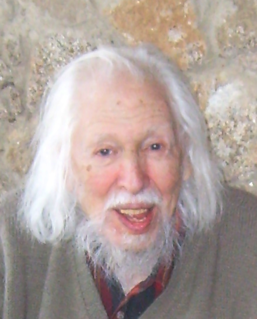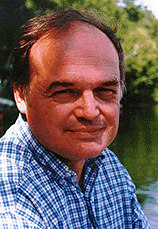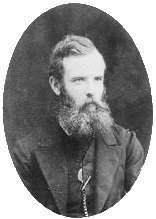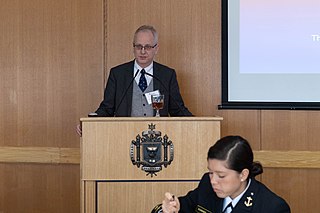
Raymond Merrill Smullyan was an American mathematician, magician, concert pianist, logician, Taoist, and philosopher.
Arthur Norman Prior, usually cited as A. N. Prior, was a New Zealand–born logician and philosopher. Prior (1957) founded tense logic, now also known as temporal logic, and made important contributions to intensional logic, particularly in Prior (1971).

George Stephen Boolos was an American philosopher and a mathematical logician who taught at the Massachusetts Institute of Technology.

Ruth Barcan Marcus was an American academic philosopher and logician best known for her work in modal and philosophical logic. She developed the first formal systems of quantified modal logic and in so doing introduced the schema or principle known as the Barcan formula. Marcus, who originally published as Ruth C. Barcan, was, as Don Garrett notes "one of the twentieth century's most important and influential philosopher-logicians". Timothy Williamson, in a 2008 celebration of Marcus' long career, states that many of her "main ideas are not just original, and clever, and beautiful, and fascinating, and influential, and way ahead of their time, but actually – I believe – true".

Thoralf Albert Skolem was a Norwegian mathematician who worked in mathematical logic and set theory.
Early Islamic law placed importance on formulating standards of argument, which gave rise to a "novel approach to logic" in Kalam . However, with the rise of the Mu'tazili philosophers, who highly valued Aristotle's Organon, this approach was displaced by the older ideas from Hellenistic philosophy. The works of al-Farabi, Avicenna, al-Ghazali and other Persian Muslim logicians who often criticized and corrected Aristotelian logic and introduced their own forms of logic, also played a central role in the subsequent development of European logic during the Renaissance. The use of Aristotelian logic in Islamic theology again began to decline from the 10th century, with the rise of Ashʿari theology to the intellectual mainstream, which rejects causal reasoning in favour of clerical authority.
The development of Indian logic dates back to the anviksiki of Medhatithi Gautama ; the Sanskrit grammar rules of Pāṇini ; the Vaisheshika school's analysis of atomism ; the analysis of inference by Gotama, founder of the Nyaya school of Hindu philosophy; and the tetralemma of Nagarjuna.
In logic, anti-psychologism is a theory about the nature of logical truth, that it does not depend upon the contents of human ideas but exists independent of human ideas.
Alice Ambrose Lazerowitz was an American philosopher, logician, and author.

Hugh MacColl was a Scottish mathematician, logician and novelist.
Irving Marmer Copi was an American philosopher, logician, and university textbook author.

Luciano Floridi is currently Professor of Philosophy and Ethics of Information and Director of the Digital Ethics Lab, at the University of Oxford, Oxford Internet Institute, Professorial Fellow of Exeter College, Oxford, Senior Member of the Faculty of Philosophy, Research Associate and Fellow in Information Policy at the Department of Computer Science, University of Oxford, and Distinguished Research Fellow of the Oxford Uehiro Centre for Practical Ethics. He is also Adjunct Professor, Department of Economics, American University, Washington D.C. He is Turing Fellow of the Alan Turing Institute, where he was Chair of the Data Ethics Group (DEG).

The Journal of Philosophical Logic is a peer-reviewed scientific journal founded in 1972. It is published by Springer and "provides a forum for work at the crossroads of philosophy and logic, old and new, with contributions ranging from conceptual to technical."
William Calvert Kneale was an English logician best known for his 1962 book The Development of Logic, a history of logic from its beginnings in Ancient Greece written with his wife Martha. Kneale was also known as a philosopher of science and the author of a book on probability and induction. Educated at the Liverpool Institute High School for boys, he later became a fellow of Exeter College, Oxford, and in 1960 succeeded to the White's Professor of Moral Philosophy previously occupied by the linguistic philosopher J. L. Austin. He retired in 1966.
Following the developments in formal logic with symbolic logic in the late nineteenth century and mathematical logic in the twentieth, topics traditionally treated by logic not being part of formal logic have tended to be termed either philosophy of logic or philosophical logic if no longer simply logic.
Lennart Åqvist is a Swedish logician. He was a founding member of the editorial board of the Journal of Philosophical Logic. Åqvist received his PhD from Uppsala University in 1960 and has subsequently worked at Uppsala as Docent of Practical Philosophy. On 5 June 1992 he received an honorary doctorate from the Faculty of Law at Uppsala University, Sweden He is currently a Reader in Practical Philosophy in the College of Law at Uppsala.
Alexander Broadie, Scottish philosopher, emeritus professor of logic and rhetoric at Glasgow University. He writes on the Scottish philosophical tradition, chiefly the philosophy of the Pre-Reformation period, the 17th century, and the Enlightenment.

Logic is the systematic study of valid rules of inference, i.e. the relations that lead to the acceptance of one proposition on the basis of a set of other propositions (premises). More broadly, logic is the analysis and appraisal of arguments.

Henrik Syse, is a Norwegian philosopher, author, and lecturer. He is a Research Professor at the Peace Research Institute Oslo (PRIO), and a part-time Professor of Peace and Conflict Studies at Bjørknes College in Oslo. He has been a member of the Norwegian Nobel Committee, which awards the Nobel Peace Prize, since 2015, and was a member of the Norwegian Press Complaints Commission from 2002 to 2016. Syse also teaches at the Norwegian Defence University College, BI Norwegian Business School, MF Norwegian School of Theology, the University of Oslo, and other institutions of higher learning, and he is Chief Editor of the Journal of Military Ethics, a peer-reviewed journal published by Taylor & Francis.
John MacFarlane is an American professor of philosophy at UC Berkeley interested in logic and metaphysics. He has made influential contributions to truth-value theory inferential semantics. In 2015, he was elected to the American Academy of Arts and Sciences. He is also noted for his contributions to free software, most especially creation of the Pandoc document converter and other Markdown parsers and verifiers. John was among the group of people that helped launch the CommonMark standardization effort for Markdown.








